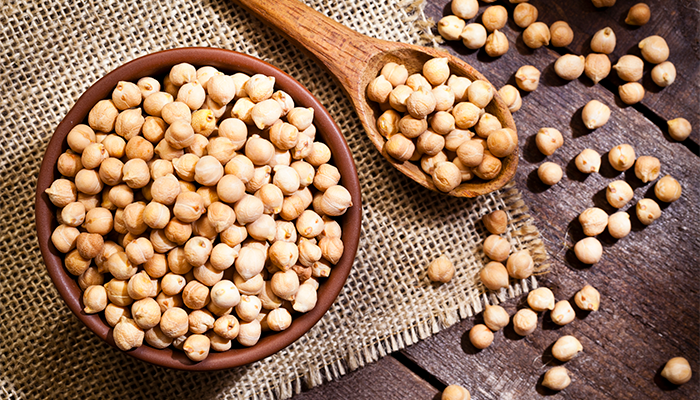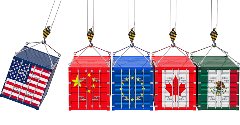News
Voyage Foods launches beanless coffee
8 Aug 2024US company Voyage Foods has launched a range of “bean-free brews”, an alternative to coffee made from roasted rice hulls, chickpeas, and caffeine derived from green tea.
Questions over the sustainability of coffee cultivation and the rising cost of coffee beans are adding to interest in beanless coffees, something that is highlighted by the launch of a beanless coffee range from California-based Voyage Foods.

Initial foodservice launch
The company has just announced the launch of its bean-free brew, which it says is the result of proprietary technology that helps transform natural plant-based ingredients into a coffee flavour format. The range will target food service providers across the US and will not be made available to retailers, although Voyage Foods founder and ceo Adam Maxwell told Ingredients Network that exploring other channels was not out of the question.
The Voyage Foods’ bean-free range is made from roasted rice hulls and chickpeas, with an additional boost from caffeine derived from green tea. It is available in both caffeinated and decaffeinated formats, as well as being offered as a roast and ground, liquid, liquid concentrate and instant – the various formats being designed to fit the needs of a variety of food service formats.
Getting the flavour right has been a crucial element in the development of the new range. “Voyage engaged in copious consumer testing to ensure the flavours and experience was in line with people’s expectations of coffee,” said Maxwell.
Answering the call for cheaper and more sustainable coffee
While the company is confident of the flavour match, Voyage Foods also believes that another significant advantages will be its competitive pricing. The company estimates that its caffeinated bean-free range will be considerably cheaper than traditional coffee ranges, depending on production volumes.
Coffee prices have surged in the past few years, with Arabica bean prices increasing by over 60% over the course of the past four years. The prices rose considerably during the Covid-19 pandemic, due to supply chain issues, and have been further exacerbated by diminishing crop yields, partly attributable to climate change.
Experts believe that current drought conditions in both Brazil and Vietnam – two leading coffee bean producers – could cause prices to rise even more in the coming months.
Likewise, the environmental impact of coffee production is also increasingly coming into play, with climate change leading to a shortage of land providing climates that are suitable for cultivating coffee. This is leading to more deforestation in tropical coffee growing regions, causing CO2 emissions to rise even further.
Affordability, supply chain stability, and sustainability are all key
While being price competitive is a crucial element to the success of the brand, moving forward the company believes that this will combine with other elements that will come into play: “As for positioning, the key messages are sustainability, supply-chain stability, and affordability: depending on order quantities, Voyage bean-free coffee is more than 40% cheaper than traditional coffee,” the company said in an emailed statement.
Voyage Foods also believes that by targeting the commodity coffee segment, it is tackling a area of the market where it can make a difference, particularly when it comes to price competitiveness.
"There will always be a place for premium, fair-trade, single-origin coffee, and that's not our target - we intend to make the biggest possible impact, and we'll do that by supplying an eco-friendlier, ethically made alternative to commodity coffee," said Maxwell.
Voyage Foods has already successfully targeted the nut-allergy category, recreating peanut-free and hazelnut-free spreads that are made from roasted seeds. The lines launched in Walmart stores across the country at the end of 2023. On top of this, the company also offers a cocoa-free chocolate targeting the B2B market.
Competition heats up in the beanless coffee category
The stakes have been increasing in the US beanless coffee segment over the course of the last couple of years with several players entering the category. Last year proved to be pivotal for investment in the category, with Voyage Foods leading the pack. It managed to secure over $40 million in 2023, adding to this with a further $52 million in funding in May of this year that brought the total to $92 million to be invested across its portfolio.
One of Voyage’s biggest competitors is Atomo Coffee, which raised $40 million in 2022 to accelerate the launch of its three-strong ready-to-drink range in retail locations across the US.
On a smaller scale, Minus Coffee, focused on cold brew beanless coffee has secured almost $5 million in funding over the past few years, adding to this with an undisclosed additional investment from Amplica Capital last year.
Minus Coffee has developed a ready-to-drink cold brew coffee made from a blend of roots, seeds and legumes that is sold DTC from its website.
Related news

Future F&B flavours favour exploration and explosive taste profiles
25 Mar 2025
Exploration and experimentation will define the future of flavour, according to Mintel, as consumers seek out taste profiles and textures that offer an adventurous eating experience.
Read more
US wholesale egg prices plummet, but volatility remains
24 Mar 2025
Egg prices in the US fell sharply in March after supply improved – but risks from avian flu and other market factors keep long-term prices unpredictable.
Read more
Global consumers enjoy food less and perceive it as less healthy
20 Mar 2025
Enjoyment of food and its perceived healthiness is dwindling among most global populations, according to findings from Gallup and Ando Foundation/Nissin Food Products.
Read more
Seafood set to ‘dethrone’ poultry as protein growth king
19 Mar 2025
Seafood is poised to surpass poultry as the leading contributor to global protein supply growth this year, according to Rabobank’s latest protein outlook.
Read more
Scientists reveal new crop production ideas to overcome food shortages
13 Mar 2025
Researchers from the University of Illinois are exploring increasing Rubisco levels to enhance photosynthesis and elevate crop productivity.
Read more
Coca-Cola enters the prebiotic soda category
12 Mar 2025
Coca-Cola is leaning into nostalgia and the growing popularity of “gut-healthy” sodas to launch a line of prebiotic sparkling beverages.
Read more
Tariff volatility leaves food manufacturers in limbo
11 Mar 2025
Rapid US trade policy shifts and tariff escalations are creating uncertainty for food manufacturers and ingredient suppliers.
Read more
‘World's first’ precision nutrition system launched in UK
11 Mar 2025
Wellness provider Reviv Global is claiming a “world first” in the field of personalised health with the UK launch of its 10X Precision Health System.
Read more
‘Health’ labels on products reduce consumers’ willingness to pay
10 Mar 2025
A study into front-of-packaging “health” labelling finds that these labels alone can lower US consumers’ willingness to pay.
Read more
F&B industry hit with fresh greenwashing claims
26 Feb 2025
The food and beverage (F&B) industry is under fresh scrutiny amid claims of greenwashing, with Arla the latest company in the firing line.
Read more